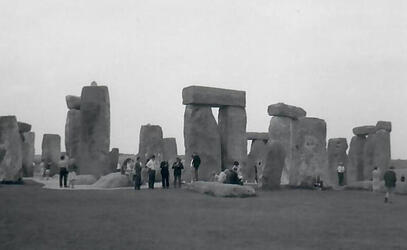The yearly tradition of our school’s Remembrance Day Service has become a huge slice of my performing duties as the Senior School orchestral director, and it is the one that I take the most seriously. This is not to say that every opportunity to perform for an audience isn’t important, as it is the measuring stick that informs us musicians of our artistic growth, and occasionally informs where we need to focus our efforts more pointedly.
But our Remembrance Day Service goes beyond its performance component because it isn’t about “performance” at all.
It’s not about how well the orchestra plays, or what the choral selection is, or how well the drama offering lands. It is about the 134 names that are slowly orated as a candle is extinguished for each one; the school’s Roll of Honour. These are the 134 students and faculty who lost their lives in the First and Second World Wars. I have heard that roll call 30 times now during my three decades at SMUS, and as I have built a relationship of sorts with this list, it stabs me in the heart every time I witness it.
I remember when former drama teacher Colin Skinner came up with the idea of lighting a candle as each name of the Roll of Honour was read aloud. The idea was brilliant, but the lighting of each candle took a very long time, especially when attempted by the shaking hands of a nervous Grade 12 student. With the switch to snuffing the candle, which is more poignant in my opinion, an important tradition was born and it has remained for decades.
I have had many conversations with students in my classes about the service and I have heard, “It’s so long, especially when the names are read.” As we talk about who the names belong to, how young the boys were when they went off to war, and how they were the same age as many of these students’ older siblings, I see the flickering realization of the significance of the roll call on their faces, and the growing wisdom in knowing why remembering them matters.
This year, the Remembrance Day Service looked very different, with it having to be pre-filmed and watched in class, rather than having the whole school community congregate in the gym. Although it is a shame that we could not come together for such an important service, I am pleased that the traditions continued: reading Captain Harvey’s letter, having a student play The Last Post and retired teacher Bill Buckingham respond on the bagpipes, and, of course, snuffing the candles during the reading of the Roll of Honour. As always, school chaplain Keven Fletcher found the lesson, the sentiment, the story to make the Remembrance Day Service relevant to the moment. And we will remember...


